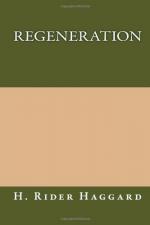In his view it was inextinguishable.
MEN’S SOCIAL WORK, LONDON
THE MIDDLESEX STREET SHELTER
The first of the London Institutions of the Salvation Army which I visited was that known as the Middlesex Street Shelter and Working Men’s Home, which is at present under the supervision of Commissioner Sturgess. This building consists of six floors, and contains sleeping accommodation for 462 men. It has been at work since the year 1906, when it was acquired by the Army with the help of that well-known philanthropist, the late Mr. George Herring.
Of the 462 men accommodated daily, 311 pay 3d. for their night’s lodging, and the remainder 5d. The threepenny charge entitles the tenant to the use of a bunk bedstead with sheets and an American cloth cover. If the extra 2d. is forthcoming the wanderer is provided with a proper bed, fitted with a wire spring hospital frame and provided with a mattress, sheets, pillow, and blankets. I may state here that as in the case of this Shelter the building, furniture and other equipment have been provided by charity, the nightly fees collected almost suffice to pay the running expenses of the establishment. Under less favourable circumstances, however, where the building and equipment are a charge on the capital funds of the Salvation Army, the experience is that these fees do not suffice to meet the cost of interest and maintenance.
The object of this and similar Shelters is to afford to men upon the verge of destitution the choice between such accommodation as is here provided and the common lodging-house, known as a ‘kip house,’ or the casual ward of a workhouse. Those who avail themselves of these Shelters belong, speaking generally, to the destitute or nearly destitute classes. They are harbours of refuge for the unfortunates who find themselves on the streets of London at nightfall with a few coppers or some other small sum in their pockets. Many of these social wrecks have sunk through drink, but many others owe their sad position to lack or loss of employment, or to some other misfortune.
For an extra charge of 1d. the inmates are provided with a good supper, consisting of a pint of soup and a large piece of bread, or of bread and jam and tea, or of potato-pie. A second penny supplies them with breakfast on the following morning, consisting of bread and porridge or of bread and fish, with tea or coffee.
The dormitories, both of the fivepenny class on the ground floor and of the threepenny class upstairs, are kept scrupulously sweet and clean, and attached to them are lavatories and baths. These lavatories contain a great number of brown earthenware basins fitted with taps. Receptacles are provided, also, where the inmates can wash their clothes and have them dried by means of an ingenious electrical contrivance and hot air, capable of thoroughly drying any ordinary garment in twenty minutes while its owner takes a bath.




